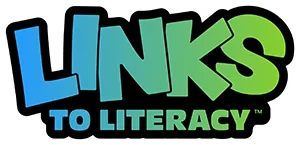Short-Term Tutoring Supports Learning Gains
Knowledge loss during the summer between school years is well documented. A research study in 2020 revealed the average student loses 17 percent to 34 percent of their learning during a summer break. Reading gaps based on income also increased during the summer, as middle-class students showed improved reading skills while lower-income students experienced loss.
There is also research suggesting any gap between learning periods is measurable and statistically significant. So, it’s likely that even short school breaks, such as holiday vacation time, will see some erosion in student knowledge. And lower-income students are more impacted by learning loss because they have access to fewer resources.
All students lost instruction time during the pandemic and schools have accelerated instruction to help students make gains. However, for students from lower incomes, the pandemic loss combined with summer loss and even learning loss during shorter school closures, has resulted in some students falling significantly behind their peers. There is an average achievement gap of three months between high- and low-income families. However, short-term tutoring with literacy interventions has the potential to reduce learning loss and narrow the achievement gap by keeping students engaged in learning during school breaks.
Whether it’s a two-week break during the school year or a longer summer break, tutoring for a limited period can be very effective in maintaining knowledge, so teachers can have a shorter review period when school resumes and move on to new material faster.
Strategies for Short-Term Learning Opportunities
Many school districts currently provide summer learning activities, but short-term tutoring or targeted instruction can also help students retain knowledge and skills until school resumes. Short-term tutoring can supplement instruction through school breaks or even outside the normal school day in an after-school program. Tutoring is a proven strategy to respond to students’ individual needs and maintain their knowledge and skills and accelerate their learning.
The Institute of Education Sciences (IES) suggests these practices for targeted instruction outside regular school days:
- Use researched-based explicit reading instruction
- Select students through achievement data
- Choose effective teachers or tutors
- Identify the most essential content and train teachers to deliver that content
- Conduct periodic assessments
- Establish and maintain good communication with families
- Provide adequate time for instruction and practice
- Provide mentors or paraprofessionals to reinforce learning
Keeping students reading throughout school breaks helps them retain their reading progress. Students in grades 3–5 can lose an average of 20 percent of the progress they made during the school during the summer. When students are reading books that engage them during any school break, they develop stronger skills and become more confident and motivated readers.
Benefits of Short-Term Tutoring
During summer 2022, approximately 90 percent of school districts offered summer learning programs. Using the school breaks and after-school programs as supplemental instructional time has the advantage of not impacting the regular school day.
Short-term tutoring:
- Helps students overcome challenges, achieve academic milestones, and become lifelong learners
- Provides individualized attention and targeted support
- Clarifies complex concepts
- Motivates and enhances student confidence
Whether short-term literacy tutoring is remediation or enrichment, it provides teachers an opportunity to reinforce student learning and offer individualized attention to maintain or grow literacy skills, so students are fully prepared for new learning when school resumes.
